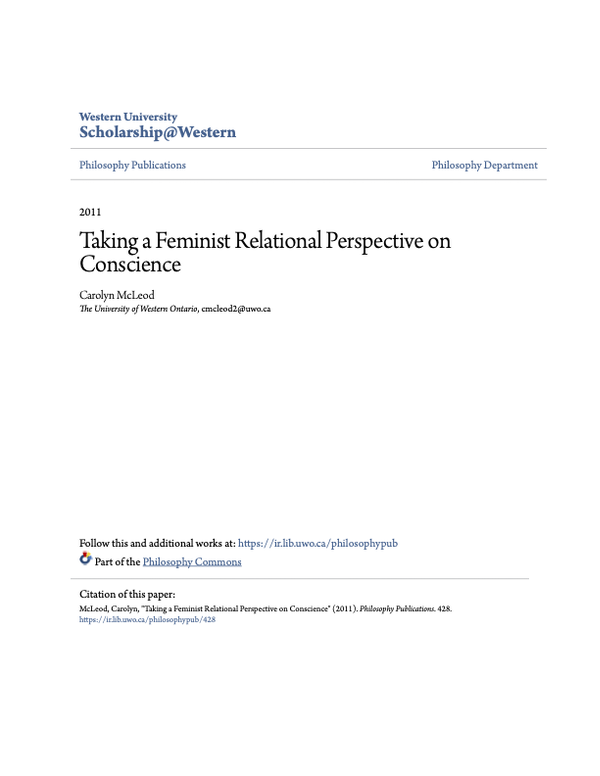Taking a feminist relational perspective on conscience
Publicación
Idioma
Autoría
Resumen
One understanding of conscience dominates bioethical discussion about conscience. On this view, to have a conscience is to be compelled to act in accordance with one’s own moral values for the sake of one’s “integrity,” where integrity is understood as inner or psychological unity. Conscience is deemed valuable because it promotes this quality. In this paper, I describe the dominant view, attempt to show that it is flawed, and sketch a positive alternative to it. In my opinion, conscience often fails to promote inner unity (regardless of the degree of inner unity we have in mind); acting with a conscience leaves many people broken rather than unified. A better view about the value of conscience is that having a conscience encourages morally responsible agency. My goal is to prove that this alternative explains better what it means to value conscience in health care and the extent to which we ought to value it.

